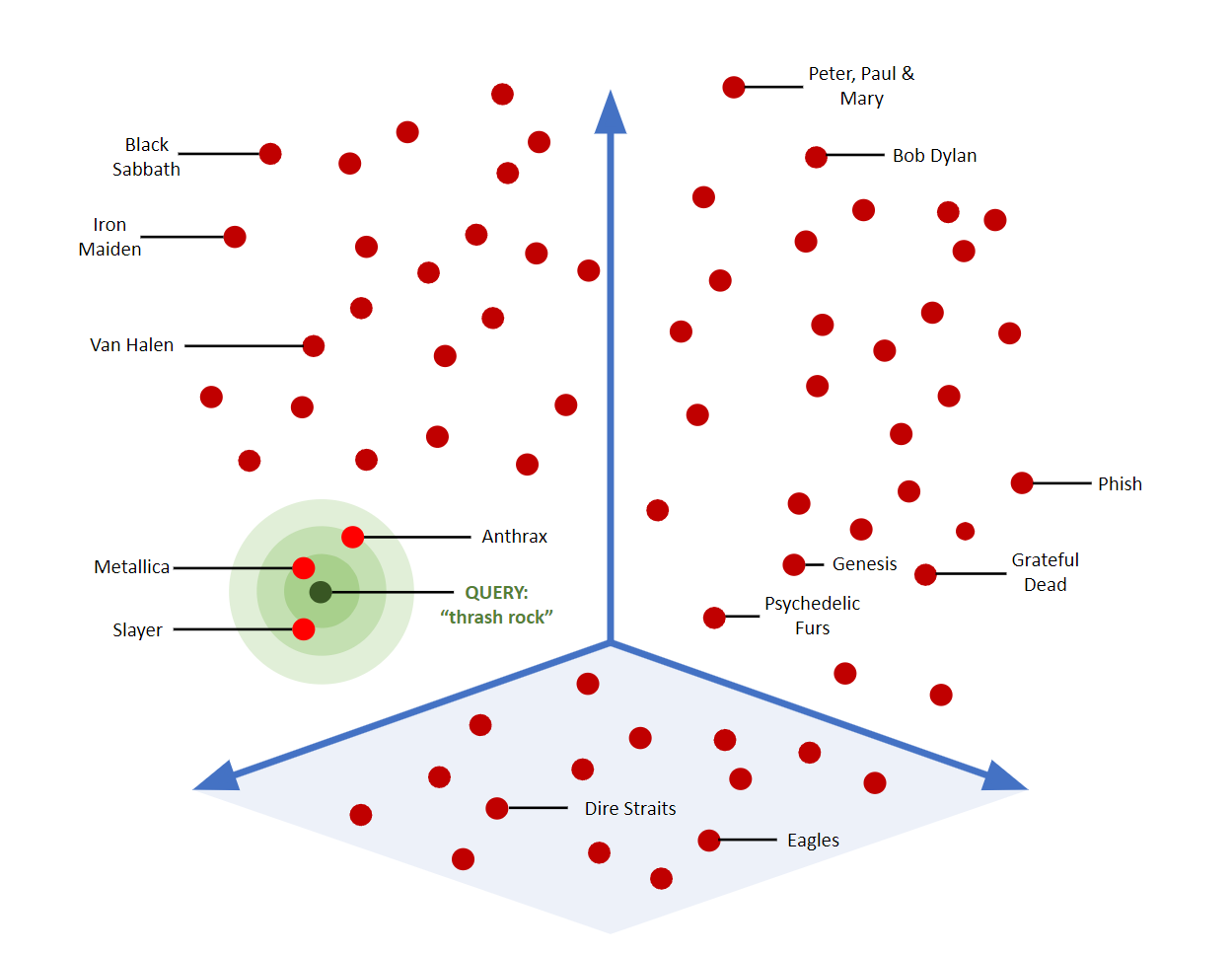
In the realm of information retrieval, traditional keyword-based searches have long been the standard. However, with the explosion of data and the increasing complexity of user queries, traditional search methods are proving inadequate. Enter vector search and vector databases, two innovative technologies that are revolutionizing the way we find and retrieve information.
Challenges with Keyword-Based Searches
Keyword-based searches have been widely used for information retrieval, but they face several limitations in today’s data-driven world. As the volume and complexity of data increase, traditional keyword-based methods struggle to deliver accurate and relevant results. Users often encounter challenges such as:
- Semantic Ambiguity: Keywords can have multiple meanings depending on context, leading to ambiguity in search results.
- Exact Match Dependency: Keyword-based searches rely heavily on exact matches between user queries and indexed content, overlooking potentially relevant information that does not contain the exact keywords.
- Complex Query Handling: With the rise of complex queries, traditional search engines may fail to capture the nuanced relationships between different concepts, resulting in imprecise results.
Vector Search

Vector search represents a paradigm shift in information retrieval by moving beyond keyword-based approaches. Instead of relying solely on exact keyword matches, vector search leverages mathematical representations (vectors) of documents and queries to calculate similarity scores. This approach offers several advantages:
- Semantic Understanding: Unlike keyword-based searches, vector search engines can analyze the semantic meaning of documents and queries, enabling more accurate and contextually relevant results.
- Contextual Relevance: Vector search algorithms consider the overall similarity between query vectors and document vectors, taking into account semantic context and relevance rather than just the presence of specific keywords.
- Enhanced Query Understanding: Through advanced machine learning techniques, vector search engines can better understand user queries and infer underlying intent, leading to more precise and relevant search results.
The Limitations of Keyword-Based Searches
Keyword-based searches have been the cornerstone of information retrieval systems for decades. Users input a set of keywords, and the system returns results based on exact matches or relevancy scores. While effective for simple queries, keyword-based searches struggle with nuances in language, context, and intent.
Lack of Semantic Understanding

One of the primary limitations of keyword-based searches is their inability to understand the semantics behind a query. For example, a search for “apple” could refer to the fruit, the technology company, or even the record label. Without additional context, traditional search engines may struggle to deliver relevant results.
Over-Reliance on Exact Matches
Keyword-based vector search rely heavily on exact matches between user queries and indexed content. This approach often overlooks documents or information that may be highly relevant but do not contain the exact keywords specified by the user.
Difficulty with Complex Queries
As queries become more complex, keyword-based searches may fail to capture the nuanced relationships between different concepts. Users searching for highly specific information or exploring interdisciplinary topics may find traditional search methods lacking in precision and relevance.
Enter Vector Search

Vector search represents a paradigm shift in information retrieval by moving away from keyword-based approaches towards a more nuanced understanding of content and context. At its core, vector search leverages mathematical representations (vectors) of documents and queries to calculate similarity scores.
Understanding Content Semantics
Unlike keyword-based searches, vector search engines can analyze the semantic meaning of documents and queries. By representing text as high-dimensional vectors in a multi-dimensional space, vector search algorithms can capture semantic relationships between words and concepts.
Contextual Relevance
Vector search goes beyond exact keyword matches by considering the contextual relevance of documents. Instead of focusing solely on the presence of specific keywords, vector search algorithms evaluate the overall similarity between the query vector and document vectors, taking into account semantic context and relevance.
Enhanced Query Understanding
Through the use of advanced machine learning techniques, vector search engines can better understand user queries and infer the underlying intent behind them. This enables more accurate and relevant results, even for ambiguous or complex search queries.
The Role of Vector Databases

Vector databases complement vector search engines by providing efficient storage and retrieval mechanisms for high-dimensional vectors. Traditional relational databases are ill-equipped to handle the complexity and scale of vector data, making specialized vector databases essential for vector applications.
Efficient Vector Storage
Vector databases are optimized for storing and querying high-dimensional vector data efficiently. By leveraging specialized data structures and indexing techniques, vector databases can handle large volumes of vector data while maintaining fast query performance.
Vector Indexing
Central to the functionality of vector databases is the concept of vector indexing. Similar to traditional database indexing, vector indexing structures organize vector data in a way that enables fast retrieval based on similarity metrics. Common indexing methods include tree-based structures like k-d trees and approximate nearest neighbor algorithms such as locality-sensitive hashing (LSH).
Scalability and Performance
Vector databases are designed to scale horizontally to accommodate growing datasets and user loads. By distributing vector data across multiple nodes in a cluster, vector databases can achieve high availability and performance, even in environments with massive amounts of data.
Applications of Vector Search and Vector Databases
The combination of those two has numerous applications across various industries and domains.
E-commerce and Recommendations

E-commerce platforms leverage vector search to provide personalized product recommendations based on user preferences and purchase history. By analyzing the similarity between user profiles and product vectors, e-commerce sites can deliver targeted recommendations that enhance the shopping experience.
Content Discovery and Recommendation Engines
Media streaming services utilize vector search and vector databases to power content discovery and recommendation engines. By analyzing the similarities between user preferences and media content vectors, these platforms can suggest relevant movies, TV shows, or music to users, increasing engagement and retention.
Healthcare and Biomedical Research
In the healthcare sector, vector search enables researchers to discover relevant scientific literature and medical records more effectively. By representing biomedical documents as vectors, researchers can identify relationships between genes, diseases, and treatments, facilitating drug discovery and clinical decision-making.
Fraud Detection and Cybersecurity
Vector search and vector databases play a vital role in fraud detection and cybersecurity applications. By analyzing patterns and anomalies in high-dimensional data, these technologies can detect fraudulent activities, identify security threats, and prevent unauthorized access to sensitive information.
Conclusion
Vector search and vector databases represent a significant advancement in information retrieval, offering a more nuanced and context-aware approach to search and discovery. By moving beyond traditional keyword-based methods, these technologies enable more accurate, relevant, and personalized search experiences across a wide range of applications and industries. As the volume and complexity of data continue to grow, the adoption of vector search and vector databases is poised to reshape the future of information retrieval.








